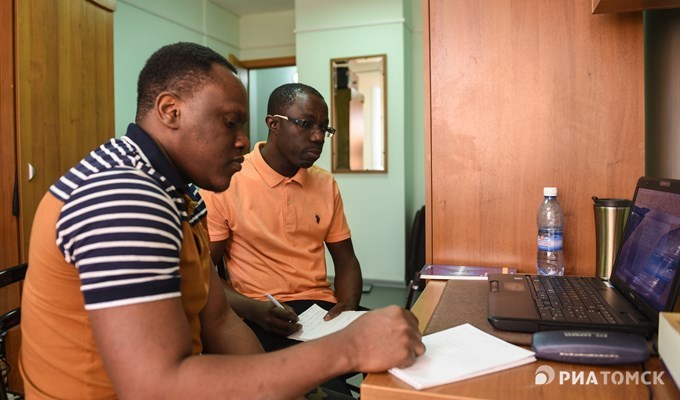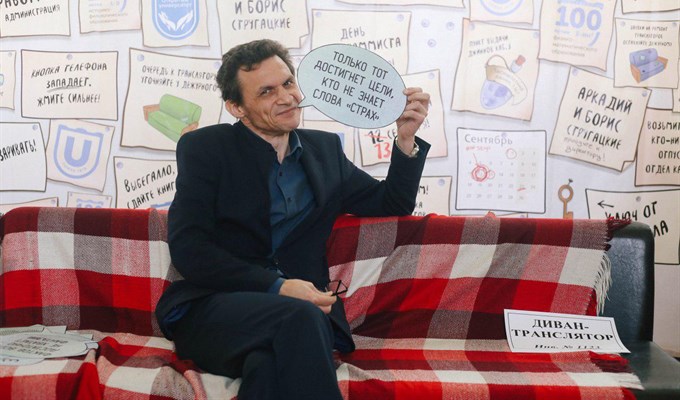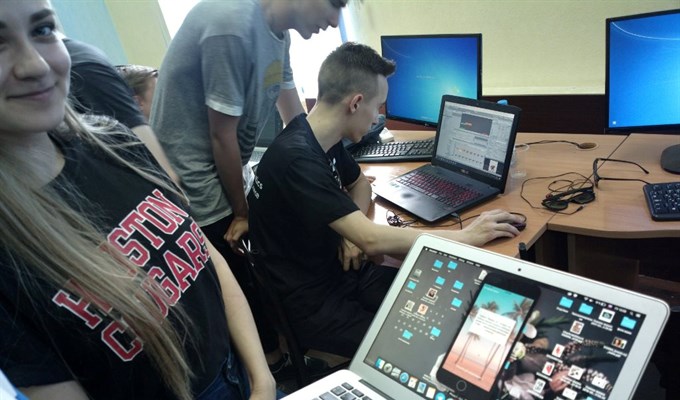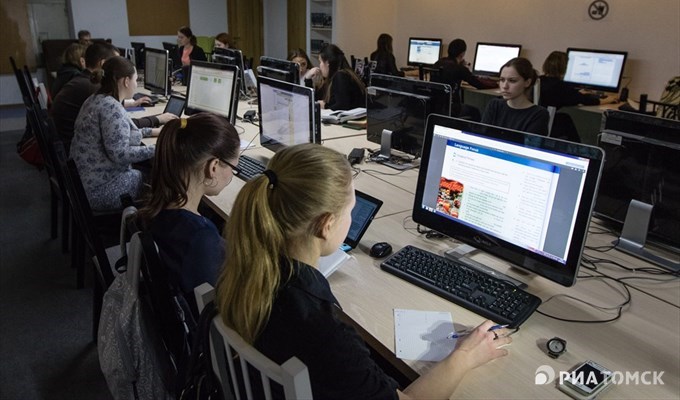TOMSK, Aug 30 – RIA Tomsk, Elena Taylasheva. Tomsk State University (TSU) graduate software engineers with real
two-year work experience next year: the first graduation course of the
pilot program begins. TSU has built a good professional school, now has
ambitions to make it world famous. How will science help and why one can
get a Nobel Prize in Computer Science – in the RIA Tomsk material.
Completion of a professional
Three
years ago, launching the pilot program "Software Engineering" (and then
creating the Higher IT School (HITs), Tomsk State University responded
to the pain of business: graduates of the university need to be
retrained and retrained so that they become at least junior developers.
Practice
showed that if from the first year students start to enter the
profession, by the third year they can start working on real projects in
companies. Moreover, the number of companies looking at HITs as at a
partner in solving staff shortages is increasing every year, because
students have a really high level, for example, fourth-year HITs student
Denis Sharapov recently became the best web developer in Russia.
"One
of the elements of the "Personnel for the Digital Economy" national
project were centers for accelerated training of IT specialists. Now we
can say that such a center at TSU is successfully operating and
developing. But does a modern IT school end with only a different
education?" – TSU Vice-Rector for Digital Transformation, Doctor of
Physical and Mathematical Sciences, head of the Higher IT School Oleg
Zmeev said.
© РИА Томск. Таисия Воронцова
This year, despite everything, HITs managed to recruit a group of international students. They will start the academic year at a distance, as soon as the borders are opened - they will come to Tomsk. In general, every third student of the school – is a foreigner.
What
kind of education to give after the bachelor's degree - is the next
task that the "pilot" must solve. And the first step – is a master's
degree.
Why
would a programmer go to master's degree program if he received all the
necessary skills in four years of bachelor's degree? "Firstly, there
are those who were unlucky with their bachelor's degree", – Zmeev
smiles. Secondly, there is a fairly large group of people who have
achieved certain success in their careers and who need "completion" in
order for them to have a level-up (that is, an increase in their
professional level).
"Completion
- is a complex process that concerns not only professional skills. It
requires reflection on further movement in the profession. You can, of
course, reflect in the kitchen with friends, but it is much better to do
this, firstly, in the company of the same reflexing people, and
secondly, in a specially created communicative space", – believes Zmeev.
© из официальной группы программы во "ВКонтакте"
"Level-up is more like education for adults. There was even an idea to do a master's program on a weekend, when a person could study with us without stopping work. Because the task of professional growth can hardly be solved by completing one course, even a very cool one", - says Oleg Zmeev.
According to him, the discussion of specific models of master's degree is now underway at HITs.
"Most
likely, the master's program will be project-based and based on a case
study format (method of cases). For different projects it will be
possible to assemble teams with different levels of training – both
those who were unlucky with the master's program and those who want
professional growth. At the same time, we will puzzle them not with
"toy" projects, but with such projects, which will solve real business
tasks", – says Zmeev.
Business
will also help to set scientific tasks in order to make the research
agenda of the school relevant, and given the fact that the partners of
the school themselves play in international markets, it is also
international.
© с сайта ТГУ
HITs partners are well-known Tomsk IT companies such as KODE, Enbisys, Center of Financial Technologies, NTR Lab, Bitworks. They not only help to update the program and take students on paid internships, but also pay scholarships to school teachers.
Agenda on the frontier
A
world-class school – is not only world-class education, but also
world-class research. This is an applied fundamental agenda that is on
the frontier and interests the whole world.
"Applied
research is also interesting for businesses that are striving for some
next reality. For business, they are called "innovations", and
innovation – is always a risky business. And sharing the risks – is a
great scenario both for them and for us", – says the TSU Vice-Rector.
Now
the most relevant (and fashionable) areas of business (and,
accordingly, scientific thought) - are machine learning and big data.
"For research in the field of General AI (general artificial
intelligence), I think, one can get a Nobel Prize. Or, for example, for
biocomputers that will work like the human brain ..." – he notes.
And
he continues: "If it is really possible to solve the issue of building a
world-class school, then we need to go into interdisciplinary areas,
"putting" on one or two narrow topics. Well, for example, semantic
models of natural language. Here Siri and Alice speak a natural language
and at the same time are robots. How to teach them to speak better,
understand more precisely? This is a task for which interdisciplinary
teams are required, which include humanitarian ones".
© РИА Томск. Павел Стефанский
"In fact, we need to educate a new generation of scientists, with different attitudes, different ethics, with a different research protocol, with different ambitions. The generation of scientists who want the Nobel Prize", – says Oleg Zmeev.
The
first step towards this has already been taken: this academic year, a
research track has been launched at HITs. The head of the school
explains:
"Finally,
we do not give part of the school's students to business, as it was in
the previous third year, but leave them at the university to engage in
research. Naturally, most of the students went to the professional
track, but three people appeared who chose science (in total, there are
35 third-year students who chose tracks this year – that is, 10%, as it
should be in the classics). And we are happy about it".
The
second step is that we are beginning to have joint research seminars
with companies from among our partners, which are engaged in relevant
topics. The latter was held with the NTR Lab".
The seminar was attended
by Professor of Physics at the University of Minnesota Vitaly Vanchurin,
a well-known expert in the theory of neural networks learning.
Good choice
All
steps towards the goal will be spelled out and included in the new
program of academic excellence of TSU, which is now being developed at
the university. "Any cool university is not built in five years. We are
talking about a horizon of 15-20 years. We want to make a story in which
a high-quality Russian education with an IT bias – is Tomsk. For the
whole world", – emphasizes Zmeev.
HITs
are already successfully competing for the best graduates of the Tomsk
region. The passing score this year is 268, despite the increase in the
number of state-funded places. It is approximately the same for the
nearest competitor – NSU.
"This
year we have practically disappeared people who choose between
universities in Tomsk. The main contingent of school applicants choose
between Moscow and St. Petersburg: Bauman Moscow State Technical
University, HSE, MIPT, ITMO, First Pavlov State Medical University of
St. Petersburg... And some of them stopped at HITs, although they could
have entered anywhere.
Talented
schoolchildren in Tomsk already know us well, the next task is - to
start working with graduates of Siberia as well. The problem is that
nonresidents choose not a university, but a city. But the fact that we
are starting to compete with big cities, by and large, lacking the
advantages of their environment, shows that we are on the right path", –
Zmeev summed up.